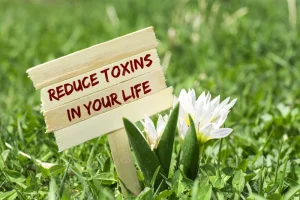
Creating a relapse prevention plan is an essential part of living life in recovery. Although every person?s strategy will be different, the following five components should be a part of any solid relapse prevention plan. Additionally, just because you have a relapse prevention plan, doesn?t mean you will relapse. It just helps minimize the damage and quickly get you back on track if you do. Even after treatment is completed, ongoing amphetamine addiction treatment counseling sessions with a mental health professional remain an integral part of the recovery process.
- If you?re a support group member, keep trusted group members or leaders? information in your prevention plan.
- Instead of drinking or using, plan to attend a support meeting or call a family member or close friend right away.
- Relapse prevention is one of the main goals of drug or alcohol treatment programs.
- Keep a note of your therapist?s phone number, emergency contacts, and a concrete action plan in case you relapse.
- On the flip side, an essential part of recovery is practicing self-care and treating your body with the respect it deserves.
Your addiction does not have to define who you are.

The primary aim of the guideline is that the professional, patient and her relatives work closely together to gain a better understanding of the relapse prevention plan patient?s individual process of relapse. Triggers and early warning signs that preceded previous relapses are identified and elaborated for the individual patient, and actions are formulated that can be performed in the event of a new impending relapse. The essence of the relapse prevention strategy is to ensure that appropriate action is taken as early as possible when early warning signs of relapse occur. You?ll work with your therapist to identify potential triggers, build coping strategies, and set up a support system to help you handle tough situations. This is the most flexible option, usually involving just a few therapy sessions a week. It often includes individual, and group therapy aimed at identifying triggers, developing coping skills, and building a solid foundation for sobriety.
What Are The Most Common Relapse Triggers?
It helps to identify triggers, develop coping strategies, and set up =https://ecosoberhouse.com/ a support system, all of which are critical for staying on track. Relapse prevention (RP) is an important component of alcoholism treatment. The RP model also incorporates numerous specific and global intervention strategies that allow therapist and client to address each step of the relapse process.
What is a Relapse Prevention Plan?
- Recovery is a lifelong process, and setbacks are a natural part of this journey.
- A supportive environment helps to motivate the loved one in recovery by rewarding their progress and providing encouragement even in difficult times.
- Compile a list of who you can call if you experience cravings, what you can do to distract yourself from cravings and how you can stop a craving altogether.
- TheMarlatt Modelillustrates how both tonic (stable) and phasic (short-lived) influences interact with each other in order to evaluate the likeliness of a relapse.
Being aware of the stages of relapse and having a plan to deal with them can help prevent you from using again. Follow these 10 techniques to help you stay on track with your recovery. Following formal treatment, many patients benefit from entering some form of aftercare. This can range from attending 12-step meetings to living in a sober living facility after completing an inpatient or residential program. On the flip side, an essential part of recovery is practicing self-care and treating your body with the respect it deserves. Maintain good personal hygiene, remain mindful of your health, and see a doctor and dentist regularly.
- Ensure you are well ? aware of your triggers and personal signs of relapse and have a clear plan of action for when powerful cravings strike.
- It can be helpful to remember to check in with yourself when starting the recovery process and at regular intervals throughout.
- There are many resources available for families who want to create a relapse prevention plan, including support groups, therapy, and online resources such as articles and videos.
- They may feel like some part of them wants to use drugs or alcohol while another part tries to fight these urges.
- If you haven?t already created one, ask your support group counselor to help you make one today.
EVIDENCE FOR RELAPSE PREVENTION

Support can come from friends, family, support groups, or professional therapists. Write down specific places, people, or situations that might lead to relapse. Common triggers include stress, social events, or environments where substances were used in the past.
- It just helps minimize the damage and quickly get you back on track if you do.
- Individual therapy offers one-on-one treatment with a professional that builds upon the progress already made.
- Interact regularly with these providers of support so you can keep to your post-treatment goals.

